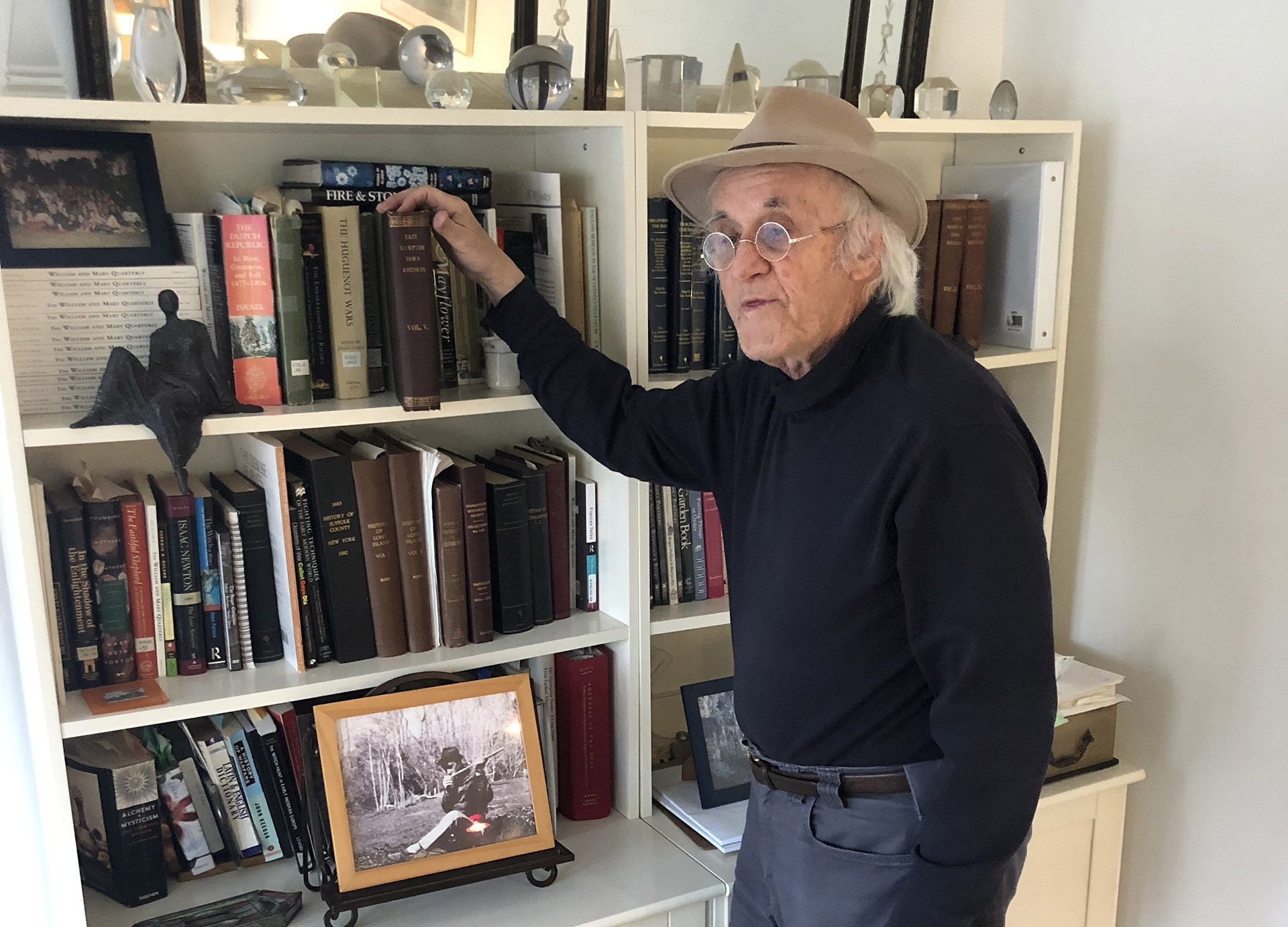New East Hampton Town Historian Named To Unpaid Position


The East Hampton Town Board, at its annual organizational meeting on January 7, replaced Averill Geus, now the former official town historian, with Hugh King, already the official town crier.
The move was not unexpected for the non-paying position, after a heated exchange among Geus, Supervisor Peter Van Scoyoc, and town board member David Lys last August over the restoration of a cemetery in Northwest Woods.
In 1919, the New York State legislature passed a law that requires a historian “for each city, town, or village” in the state. The responsibilities are several. A town historian, the law states, shall “promote the establishment and improvement of programs for the management and preservation of local government records with enduring value for historical or other research; encourage the coordinated collection and preservation of nongovernmental historical records by libraries, historical societies, and other repositories; and carry out and actively encourage research in such records in order to add to the knowledge, understanding and appreciation of the community’s history.”
The law also calls on the historian “to collect and preserve material relating to the history of the political subdivision for which he or she is appointed, and to file such material in fireproof safes or vaults in the county, city, town, or village offices.” The town is required to provide the said “fireproof safes or vaults.”
Geus and board members got into their August kerfuffle over the restoration of the cemetery on Old Northwest Road that was used by the Terry and Van Scoy families, with 19 surviving memorial stones dating from between 1792 and 1884, including a monument to a Revolutionary War veteran and a rare family obelisk cast in zinc. Lys was spearheading the movement for the restoration.
Geus, who is a descendant of the Dayton family, early settlers of East Hampton, said during the public comments portion of the town board meeting August 6 that Lys had no real interest in the proper preservation of the cemetery, because “he has no ancestors planted there.” When Van Scoyoc tried to intercede on Lys’s behalf, Geus questioned whether Van Scoyoc really was a true descendant of the Van Scoy family.
Past the August verbal fracas, it appears that Geus, who had been the historian for several years, had failed to comply with a basic section of the state law, which requires that the historian file, every January, a detailed report with the town supervisor on what he or she had done the preceding 12 months to further the law’s objectives. When The Independent recently filed a Freedom of Information Act form requesting the annual reports from the past few years, there were none to be found, according to the town clerk’s office.
If the town got nothing regarding annual reports from Geus, it was getting what it paid for. East Hampton Town is the only one of the five towns on the East End that does not pay its official historian a part-time salary. While the law states that the position of historian is an unpaid one, it also makes clear that a municipality can compensate its
historian.
Shelter Island’s 2020 budget includes $4684.15 for its historian, W.Y. Clark III. Riverhead budgets $7000 per year for Georgette Case. Case has written on the history of Riverhead. In 2019, Southold budgeted $17,550 for its historian, Amy Folk. Southampton Town outdoes them all, budgeting $31,212 for its part-time town historian, along with over $7000 for a part-time secretarial assistant. The town historian, Julie Greene, will “continue the digitization of Southampton Town’s historical holdings to preserve the town’s heritage and treasures for future generations,” the town’s budget states, as well as working with the Southampton’s Historic Burying Grounds Committee to preserve and restore the 10 cemeteries Southampton Town owns.
The state law also covers the transition from one historian to another, in cases where a former historian has either retired or been removed from office. The departing historian is required to “turn over . . . to his or her successor in office, if one has been then appointed, all materials gathered during his or her incumbency and all correspondence relating thereto.”
t.e@indyeastend.com



